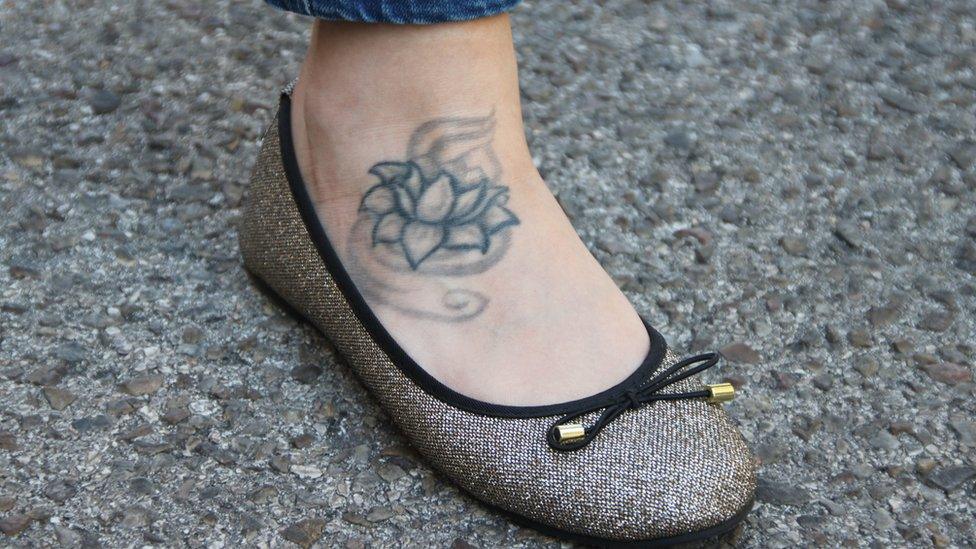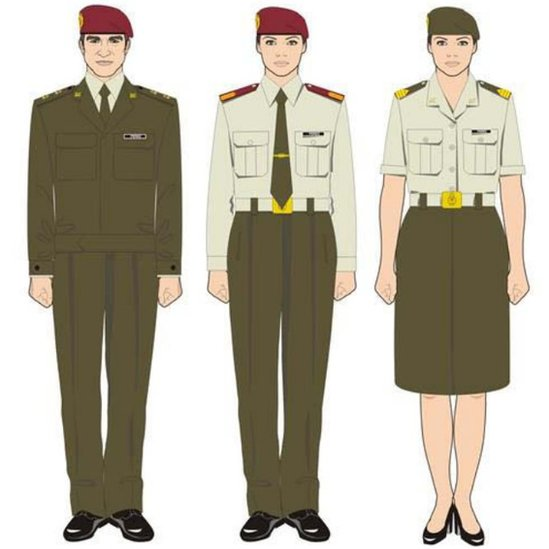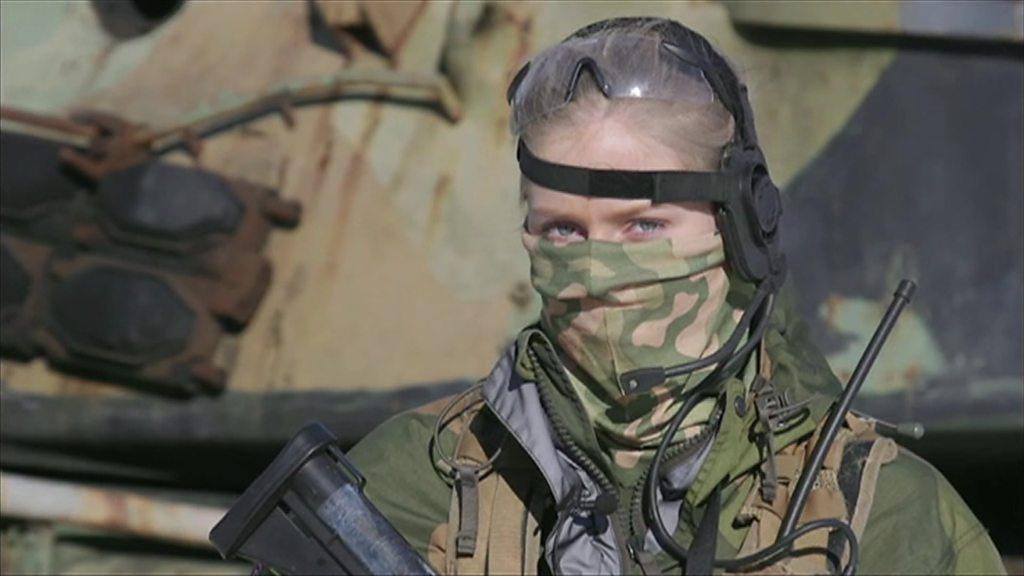Tattoo taboo: Spanish woman fights rejection by army
- Published

Estela Martín argues that under a change in army rules her tattoo will never need to be exposed
When Estela Martín got a black lotus flower tattooed on the upper part of her right foot at the age of 18, her parents were unhappy about it, but she saw it as a positive symbol.
"I've always liked the idea that the lotus represents, which is that you have to fight for what you want," she says.
But 12 years later, that same tattoo has left her fighting to save her ambition of a career in the Spanish military.
In June, Ms Martín took part in a civil service exam to become a military psychologist. She had left her previous job, in a Madrid hospital, two years earlier in order to study and prepare herself for the highly competitive selection process.

The lotus flower tattoo dates back to when Elsa Martín was 18 years old
But when she was taking part in a swimming test that was part of the exam, an examiner saw the tattoo on her foot and told her she could not continue because it could be visible when worn with a skirt.
Ms Martín understood that the rules no longer obliged women to wear skirts and, given that that the tattoo was not visible when she wore trousers, she argued that it was within the regulations. However, she says the examiner insisted that she could be ordered to wear a skirt and refused to change his mind.
"I felt terrible, at first I couldn't believe it," she says. "The reasons he was giving me seemed so absurd. I left utterly distraught, I was crying."
Ms Martín says there were several men taking the same swimming exam who had body art, including one who had a tattoo on his heel, but none of them were pulled out of the process.
Another woman was withdrawn from the examination for having a tattoo that she had partly removed with laser treatment.
"There were two things that bothered me," says Ms Martín. "Firstly, there was the personal issue - it was two years of my life all for nothing, so much work and sacrifice. And then, above all, why should men be able to have the same tattoo and it's no problem for them?"

What to wear: Spain's army uniform rules

Women in the Spanish military will generally wear trousers (C) but can request the use of a skirt
Prohibited: Tattoos and piercings "that could be visible while wearing different types of uniform"
Until 2016, women were required to wear a skirt in certain circumstances. That has now changed
Under many circumstances, women must wear trousers, but in some cases they can request the use of a skirt. They are never obliged to wear a uniform in which the bare skin of their feet is visible

Estela Martín's case comes at a time when the issue of gender equality has come to the forefront of Spanish social and political debate.
This year's International Women's Day, on 8 March, saw tens of thousands of women across the country go on strike as they demanded equality in all areas of life. In April, there was a massive feminist backlash against a court ruling absolving five men of the rape of a young woman in Pamplona in 2016.
"If this had happened a few years ago, I would have expected nobody to believe me or listen to me," she says of her problems with the military. "But right now we're seeing progress and change in this area and that's why it has hurt so much and that's why it's given me strength."
She has appealed to the ministry of defence to allow her to take the exam and is optimistic that the ministry will be sympathetic, given that it is led by a woman.

Tattoos are allowed for existing members of the military but not new recruits
Margarita Robles is one of 11 female ministers in Spain's new Socialist government. However, time is running out as Estela Martín, who at 30 is at the maximum age allowed for candidates for this post.
Her father, who was horrified when she first got the tattoo, is now supporting her and backs her decision not to remove it on principle.
Elsewhere in Spain's security forces, there are suggestions that attitudes to body art are changing.
The new Interior Minister, Fernando Grande-Marlaska, has frozen the introduction of new rules for the physical appearance of civil guards - they included tighter restrictions on tattoos, particularly for women.
Mr Grande-Marlaska himself has a tattoo on his wrist that says: "No regrets, no fear."
- Published31 March 2017
